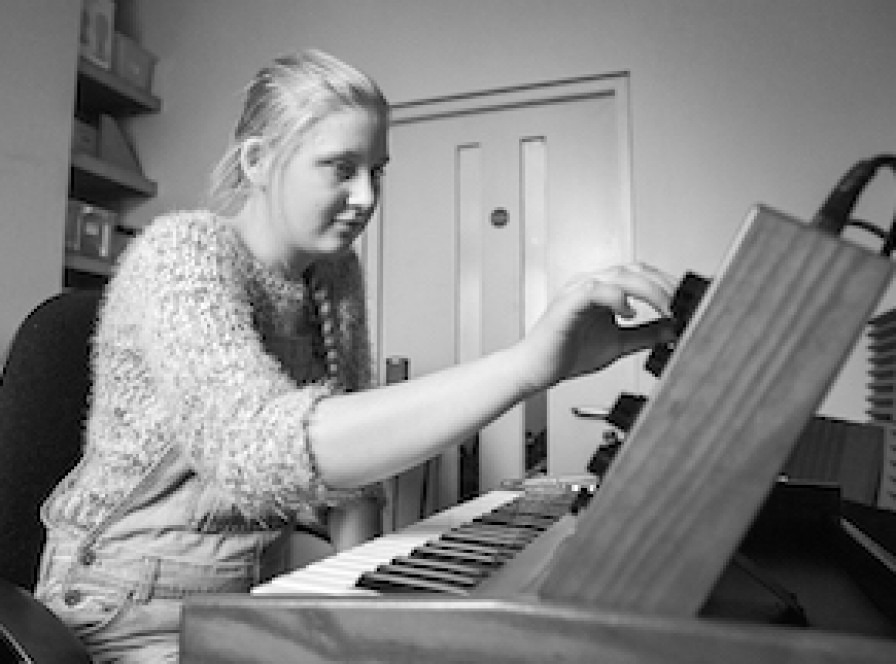Wildflowers and our environment: a Kew Gardens commission

Joy Hardy, talented pianist, guitarist, composer and Sing City-regular, blogs about winning a commissioning opportunity with Kew Gardens, who have selected her to compose a piece of music to help young people engage with the importance of wildflowers in our environment.
I’m 16 years old and I compose piano based music. I have always had an interest in music and I taught myself to play the keyboard when I was nine. From then on, I also taught myself the ukulele, and guitar. I also have some basic knowledge of how to play the flute, violin and cello, because they are the main instruments I have used along with piano for my compositions. I first started composing when I was 13. However, I have always made up my own melodies and tunes ever since I started having an interest in music.Personally, I am a composer because I feel driven to express myself through music. I have patterns that feel trapped in my head until I can find a way to play them or write them down. As I am composing, I find that I have too many ideas to write at once. It is extremely competitive to be a composer today, so for me to be successful, I appreciate I will need to practice, be determined, make contacts and relationships, and be able to collaborate with others. Brighter Sound has been very supportive in helping me develop these skills with musical projects I have been doing.
I’m really looking forward to this commission because I will be composing to a theme, and involving other young people to create an unusual piece. I applied to this commission because I wanted the opportunity to have a focus and work on a piece that could inspire other young people to get involved with the things they enjoy doing.
My idea for the commission is to create a piece of music to be performed by young musicians on piano, violin, cello, flute and harp. The music will explore the importance of native wildflowers. The piece starts in a 17th century hay meadow. The music will be initially happy and reflect the range of wildflowers, creating a different musical section relating to each flower.
My theme will then gradually change as time advances, and the range of plants become reduced by the change in farming methods. This aims to create a feel for what it would be like with less wildflowers and show the impact on wildlife and surroundings. This section reduces to silence to emphasise how the loss of pollinators affects the plants, birds, animals.
The third movement reintroduces hope as we move on to time today: gardeners, working with children, reduce the size of their lawns and scatter seeds, allowing wildflowers to grow, which enables the pollinators, then birds and finally mammals to return.
Along with my composition I am going to be making an accompanying animation. In order to achieve this, I am currently working with an art club based in Tintwistle Church of England school. The animation will be made from art created by the children who are enjoying making a difference to their environment and learning about wildflowers.
I have really appreciated the support given to me by the Brighter Sound team. I originally applied for the Change or be Changed commission which I did not achieve due to the fact I was too young at the time. However, Brighter Sound have been incredibly supportive and introduced me into the possibility of applying for this commission with Kew Gardens. As a shy person, this mentoring has given me a real boost. I would encourage other young composers to apply for commissions because having a focus has hugely enhanced my musical development.

